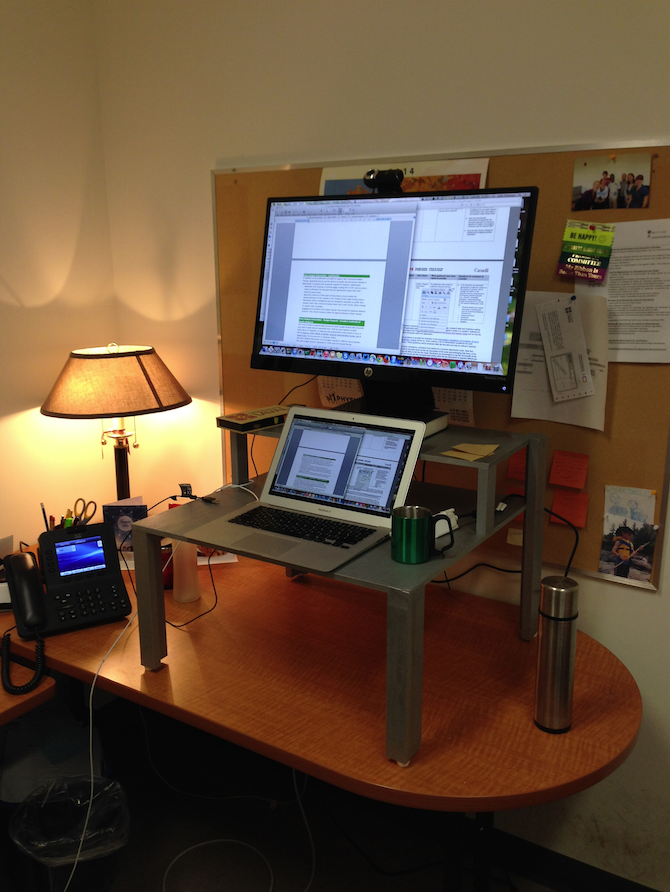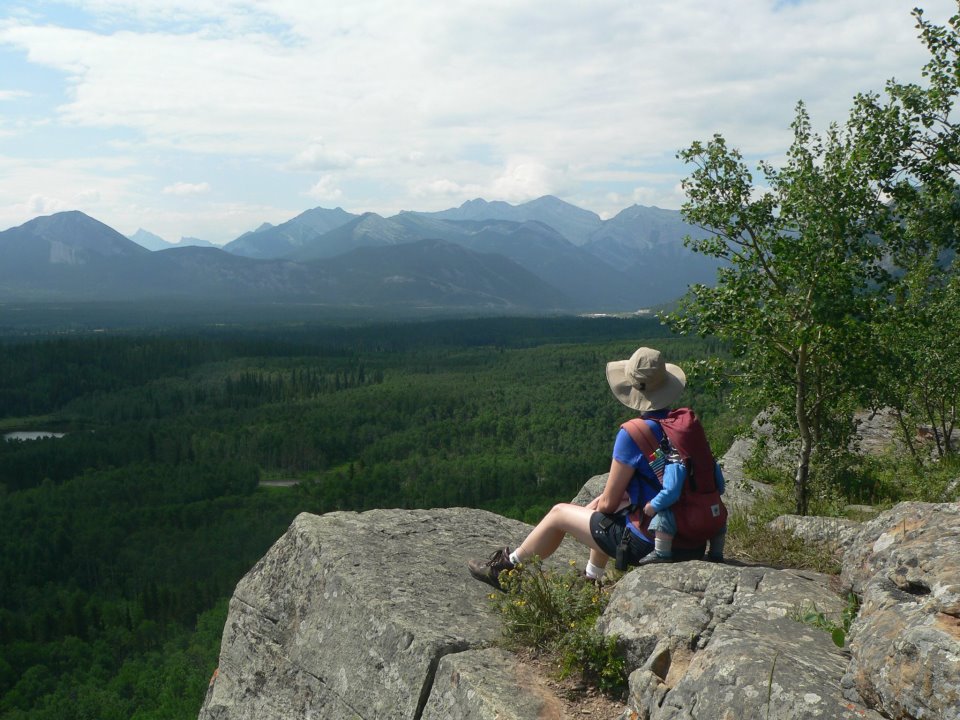In keeping with my themed reading (all pleasure reading must at least have some practical applicability to my life) I took Motherhood: The Elephant in the Laboratory with me to a conference combined with a stopover to visit my in-laws last week. The book was interesting, inspiring, and had some wonderful anecdotes, but I was underwhelmed by the narrative style.
Overall, the writing was clear. Sometimes it was very good. Yet, I had the sense as I was reading that each essay had been subjected to severe editing and/or each author had been given a set outline: (1) tell us how/why you chose a career in science, (2) describe your experience combining that career with motherhood, and (3) please share any words of wisdom for women coming up behind you. It felt like some strange adaptation of IMRAD, applied to themed biographies. I appreciate logical structure, but I’m looking for something a little less predictable and plodding in personal essays. Also, summing up a long career in just a few pages leaves very little space for the delicious contextual details that flesh out stories.
Perhaps I’m just disappointed. I liked Mama, PhD, but I wanted more stories from scientists. Here I had a feast of such stories, and my expectations may have been too high.
It’s also possible that I am just tired of reading about how difficult it is to raise a family while building an academic career. I am living some of the difficulties, especially right now. (It only took me a few years, but I am beginning to suspect that academic life never stops being frantically busy; you just learn to deal with the chaos more effectively as you ramp up the level of activity.) Maybe I should read things that take my mind off of this precarious balancing act.
Bottom line: I liked it, but I didn’t love it.




2 thoughts on “Motherhood: The Elephant in the Laboratory”
Hi Holly, came across your comments on Motherhood the Elephant and thought I’d respond (as editor.)
I appreciate that you gave it a read. Not to get on the defensive, because as editor I am responsible for the final product as a whole – but for the most part – between me and Cornell, the editing was very light (for most essays, some were edited for readability) and the content was left completely open and up to the author. I put out a call for essays sent prospective writers the book proposal so they’d know what they were getting into, and these essays are what I gratefully received. You are not the first to comment that the essays seemed severely edited – perhaps that is because they were edited so lightly – without my pushing for more? If so, that would be my fault as a first-time editor!
For many this was their first time ever writing a personal essay for publication and for those of us in the sciences (or any field really) – especially those of us of a certain pre-blogging generation who aren’t used to writing about our lives- writing about personal experiences for the public can be daunting. That alone, never mind having been trained since graduate school to write dry, direct research articles, was likely difficult for many writers trained as scientists.
It was my suggestion that the essays be on the shorter side – that may have been inexperience – I modeled it on a few other books of personal essays. Well, I fear I am getting defensive – but as editor – and as one who encouraged these women to write – I do tend to get protective! Perhaps the mama-bear in me?!
Anyway – I do appreciate your reading and writing about the book,
Sincerely,
Emily
Hi Emily,
Thanks so much for offering some insight into the crafting of the book.
As I said, I did like it and it resonated for me — otherwise I probably wouldn’t have taken the time to read and then review it. My post was intended to lightly explore how and why I didn’t love the book the way I wanted to. That disappointment has multiple potential explanations, many outside of the book itself. It might have been partly a function of my high expectations; it might also have been the classic disappointment of someone who is secretly (or not so secretly) looking for answers that don’t exist.
It’s fascinating to me that there weren’t any structural instructions given to authors or any heavy editing. Some essays really read to me as through there were. Perhaps that speaks to — as you suggest — the formative experience of writing scientific articles? It may also have to do with the common themes cutting across women’s experiences.
I can also see how it could be daunting to reveal one’s personal life so publicly, and I appreciate the tension in setting parameters for length such that essays are long enough, but not too long. I would have liked them to be longer, but I generally prefer meaty essays.
In any case, I thought it was an interesting book and, as a young scientist, I am very glad you went to the work of putting it together. I’ve already recommended it to a few colleagues.
All the best,
Holly